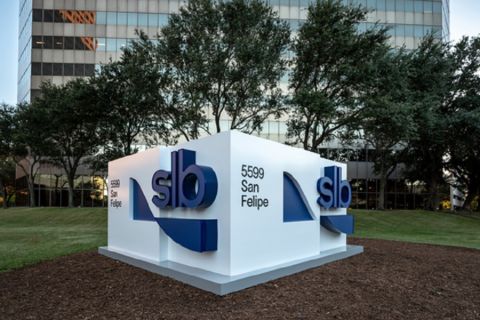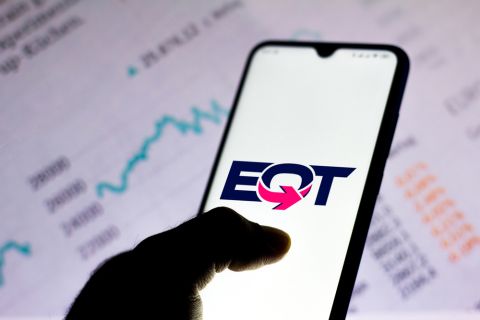Pogo Producing Co. will increase its exposure to North American natural gas significantly upon acquiring Noric Corp. , the parent of North Central Oil Corp. The Houston independent is offering $630 million-half in cash and half in Pogo common stock, subject to a collar-and will assume approximately $120 million of North Central's net debt, for a total deal value of approximately $750 million. The combined company will have an equity value of approximately $1.3 billion and a total enterprise value of approximately $2.2 billion. Executives indicate that Pogo plans to hedge a significant portion of North Central's gas volumes through at least 2002 to take advantage of the strong North American natural gas market. "It provides Pogo a broader inventory of U.S. natural gas-oriented projects, where it might get some near-term production growth. That will help complement longer-term projects in the Gulf of Thailand and in Hungary, where it may drill a well in the second half of next year," says Jeffrey Robertson, an E&P analyst for Lehman Brothers Inc. in New York. He has an Outperform on the stock and considers the acquisition accretive to Pogo's cash flow and reserves. He believes the deal will be slightly dilutive to earnings, however. "But Pogo plans to put some pretty significant hedges on production to lock in a possibly better price than the numbers we're using," Robertson says. John Myers, an E&P analyst for Dain Rauscher Wessels , says, "It certainly was a high [transaction] price, but in today's commodity-price-driven market, that's what reserves are worth. And if Pogo goes ahead and locks in current gas prices using the futures market, it looks to be a good deal." He anticipates the deal will add 40 cents to earnings if the company can lock in gas prices at around the recent strip price, which was better than $5 per thousand cubic feet. His target on Pogo shares was $38. The company's common shares closed 44 cents higher at $25.37 on November 20, the day the deal was announced. They recently were trading at $26.25. A better rating Standard & Poor's Corp. and Moody's Investors Service separately affirmed their ratings of Pogo's debt, after the announcement. Moody's said that it would place its assessments under review for probable upgrade. It rates Pogo's senior implied debt as Ba3, senior subordinated debt ($100 million of 8.75% notes due 2007 and $150 million of 10.375% notes due 2006) as B2, and $150 million of convertible subordinated notes due 2009 as B2. All are on the lower end of the midlevel range. S&P, meanwhile, maintained a stable outlook on Pogo's corporate credit (BB), preferred stock (B) and subordinated debt (BB-). The ratings services say the transaction's single greatest benefit may be to reduce Pogo's reliance on its operations in the Gulf of Thailand. The addition of North Central, which is also based in Houston, will increase Pogo's scale substantially, giving it another 532 billion cubic feet of natural gas equivalent (Bcfe) of reserves, mainly in regions where Pogo already operates. The purchase also will give Pogo an additional core area (the Madden Field in the Rocky Mountains), double the company's North American gas reserves and change its weighting from 44% gas to 61%, Moody's adds. S&P conceded that the acquisition will result in higher near-term debt levels for Pogo, but the company has created some capacity within its rating category for new debt by using cash flow and new preferred equity to reduce its financial leverage during the past two years. As of September 30, the ratio of Pogo's total debt to total book capital was about 47%, down from 53% at year-end 1999, according to S&P. At the same time, it expects Pogo's total net debt to average less than 1.7 times earnings before interest, taxes, depreciation, amortization and exploration expense, compared with 1.5 times EBITDAX as of September 30 and 3.3 times EBITDAX at year-end 1999. 35% more gas "This transaction will enable us to achieve a number of key strategic objectives going forward. These include the significant enhancement of our long-lived North American natural gas position and improved exploration and production potential in our core domestic operating areas in and around the Gulf of Mexico," says Paul G. Van Wagenen, Pogo chairman and president, who will retain those positions postclosing. It also will increase Pogo's projected 2000 annual production 35% to 165 Bcfe and extend the company's current indicated reserve life 20% to 8.3 years, he adds. The transaction will be accounted for as a purchase and is expected to be immediately accretive to earnings, cash flow, reserves and production per share. Pogo intends to finance the cash portion of the acquisition through a combination of cash on hand and a new bank revolving credit facility. It anticipates that the acquisition can be completed during first-quarter 2001. The transaction is expected to be tax-free to Pogo and to Noric shareholders, to the extent they receive Pogo common stock. "Our combination with North Central will provide us with a highly concentrated property mix centered in five core areas. It will augment our strong presence in the Gulf of Mexico and Permian Basin areas, and further diversify our existing operations in Thailand and Hungary with new properties in the Rocky Mountain region," says Van Wagenen. Exploration prospects of particular interest include the Los Mogotes and Hundido fields in Zapata County, Texas, that contain multiple Wilcox horizons where seismic analysis has identified significant reserve potential, and the Madden Deep Unit in the Rockies, where the downdip potential is estimated to be extensive. There are also more than 140 identified onshore and offshore Gulf Coast exploration drilling locations to pursue. On the development side, Pogo will continue work on its Benchamas, Tantawan and Maliwan fields in Thailand. Pogo's Mississippi Canyon 661/705 and Ewing Banks 871/872 discoveries in the deepwater Gulf of Mexico will require development. And in the Permian Basin, Pogo will continue development of dozens of fields with Brushy Canyon and Morrow production. The companies' combined program will also include 100 development opportunities in South Texas. The cash flow generated from increased production will fund this sizable inventory of high-impact exploration projects, and the stronger financial position will allow the combined company to aggressively pursue future exploration, development and acquisition opportunities, Van Wagenen adds. In 1999, Pogo and North Central generated a combined $132.5 million of discretionary cash flow. Given the rising production profiles of both companies and expectations for continued improvement in commodity prices, pro forma discretionary cash flow was projected to increase 185% to $378 million in 2000. Merrill Lynch & Co. was financial advisor to Pogo; Goldman, Sachs & Co. was Noric and North Central's advisor.
Recommended Reading
SLB’s ChampionX Acquisition Key to Production Recovery Market
2024-04-21 - During a quarterly earnings call, SLB CEO Olivier Le Peuch highlighted the production recovery market as a key part of the company’s growth strategy.
PHX Minerals’ Borrowing Base Reaffirmed
2024-04-19 - PHX Minerals said the company’s credit facility was extended through Sept. 1, 2028.
BP Restructures, Reduces Executive Team to 10
2024-04-18 - BP said the organizational changes will reduce duplication and reporting line complexity.
Matador Resources Announces Quarterly Cash Dividend
2024-04-18 - Matador Resources’ dividend is payable on June 7 to shareholders of record by May 17.
EQT Declares Quarterly Dividend
2024-04-18 - EQT Corp.’s dividend is payable June 1 to shareholders of record by May 8.





